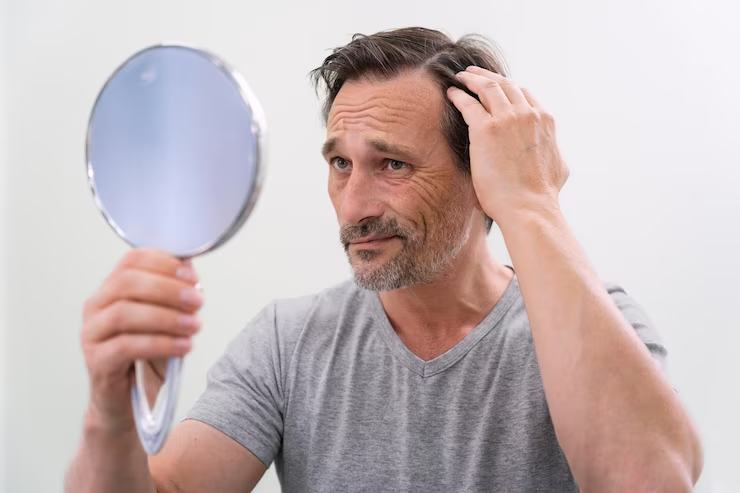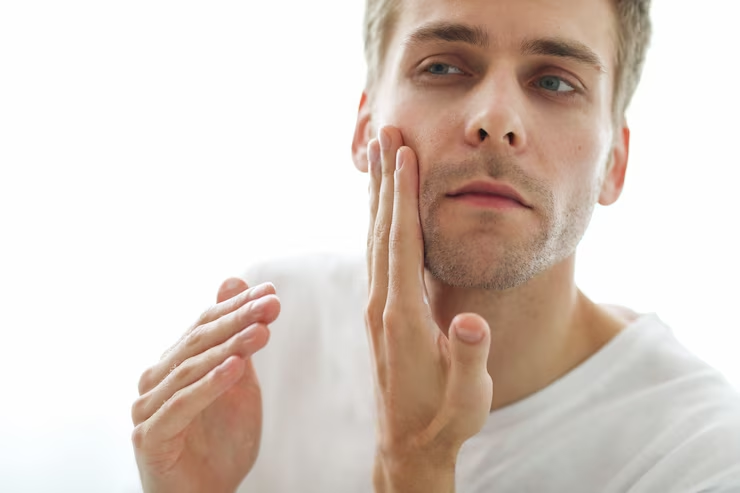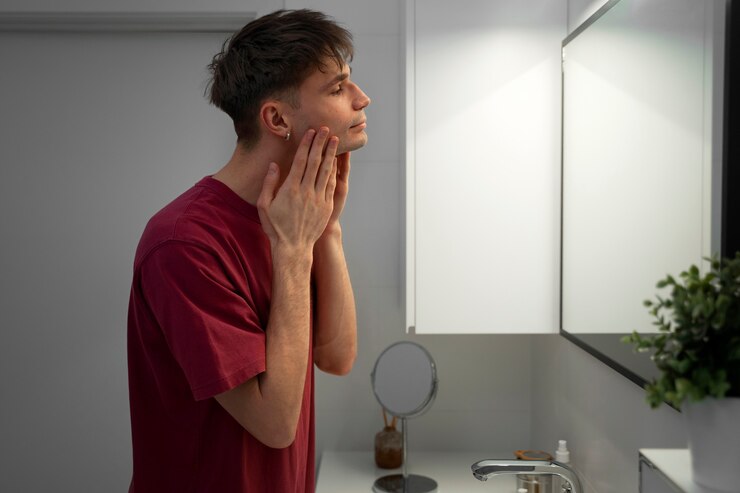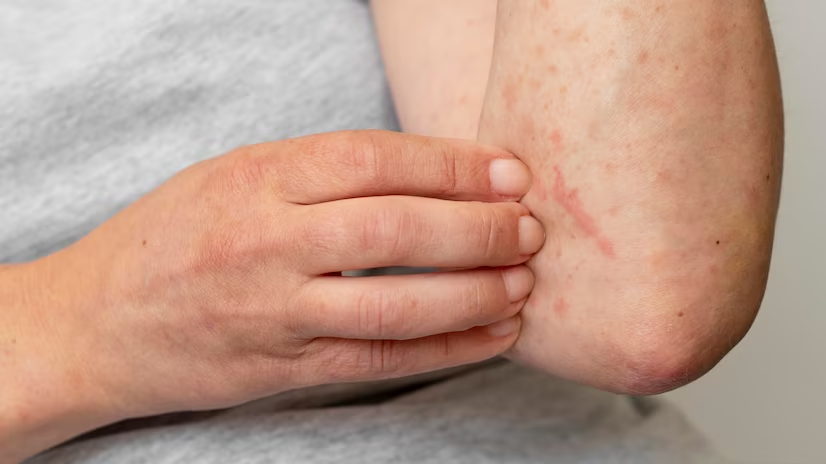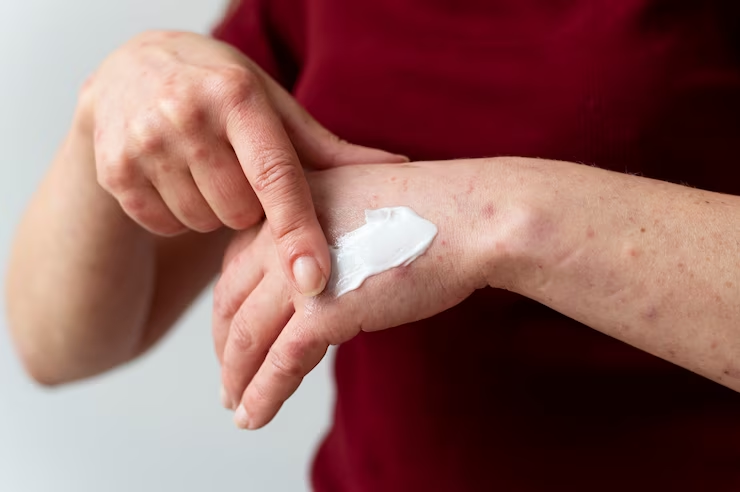
Do you find yourself tossing and turning at night, unable to escape the relentless itch that intensifies when the lights go out? If so, you're not alone. Many people experience the frustrating phenomenon of itchy skin with no rash, but what makes it even more perplexing is how it worsens as the night wears on. This mysterious condition, often called "itchy skin, no rash gets worse at night," can disrupt your sleep and leave you desperate for relief.
In this blog post, we will explore the causes behind this enigmatic itch, discuss why it tends to intensify during nighttime hours and provide practical tips and strategies to alleviate the discomfort. So, let's delve into the world of nocturnal itchiness and discover ways to reclaim peaceful nights and itch-free dreams.
Why Itching Can Be Worse at Night
Is your skin itchy at night without the presence of a rash? Pinpointing the underlying cause can be a challenging task. However, several potential culprits may contribute to this frustrating condition. Let's explore some of the common causes:

Dry Skin
One of the primary causes of getting your skin itchy at night without a rash is dryness. Insufficient moisture can lead to itching, especially when the skin's natural protective barrier is compromised. Factors such as low humidity, excessive bathing or showering, and harsh soaps can strip the skin of its natural oils, exacerbating dryness and triggering itching.
Home remedies
Apply a high-quality, fragrance-free moisturizer that contains ingredients like hyaluronic acid, glycerin, or ceramides, which help attract and retain moisture in the skin.
Place humidifiers in the rooms you spend the most time in, such as your bedroom or living room, to add moisture to the air and prevent your skin from drying out.
Stick to lukewarm water when bathing or washing your face, and limit your shower or bath time to 10 minutes.
Opt for mild, fragrance-free cleansers specifically formulated for dry or sensitive skin. When washing your face or body, avoid scrubbing vigorously and use gentle, circular motions instead.
Add colloidal oatmeal to your bathwater to relieve dry, itchy skin at night. Consider using natural oils like coconut, jojoba or almond, as a moisturizer. Apply a small amount to damp skin after bathing or showering to seal moisture.
Drink adequate water throughout the day to keep your skin hydrated and prevent dryness.
Bug Bites
Bug bites, such as those from mosquitoes, bed bugs, fleas, chiggers, and ticks, can lead to intense itching without an apparent rash. These bites can lead to localized itching and discomfort, often occurring in specific patterns or areas of the body.
Home Remedies
Apply a cold compress or ice pack wrapped in a thin cloth to the affected area for 10 minutes.
Apply calamine lotion to the affected area. Calamine lotion has a cooling effect and can help relieve itching and reduce inflammation.
If the itching is severe, consider using over-the-counter antihistamine creams or taking oral antihistamines to help reduce itching and inflammation.
Side effects of some medications
Certain medications, such as acetaminophen, morphine, and fentanyl, can have potential side effects. If you are experiencing skin-related issues while taking blood pressure-lowering medications, consulting with your healthcare provider is important.
Kidney disease
Kidney disease can be a potential cause of itchy skin at night without a rash. When the kidneys are not functioning properly, they may struggle to filter waste and toxins from the bloodstream effectively. This can lead to a buildup of certain substances in the body, such as urea, that can irritate the skin and cause itching.
Nerve disorders
Nerve disorders can impact the transmission of messages from the skin to the brain. When there are issues with the nerves, it can result in itchiness or pain on the skin, even without any physical harm or damage to the skin itself. This phenomenon is known as neuropathic itch, where the nerves malfunction and generate sensations of itchiness or pain without underlying skin damage.
Itching or skin sensations without a rash can be associated with nerve-related conditions, including stroke, diabetes, and postherpetic neuralgia.
The American Academy of Dermatology states that diabetes can give rise to various skin problems. One such issue is itching, which can be attributed to diabetic neuropathy, a complication of diabetes characterized by nerve damage.
Liver disease
Liver disease, including cirrhosis and hepatitis, can contribute to skin itchy at night without a rash. The liver is vital in filtering toxins and waste products from the bloodstream. When the liver is compromised due to disease, its ability to perform this function effectively is reduced.
Itchy skin related to liver disease is typically generalized and may worsen in certain areas, such as the palms of the hands and the soles of the feet. The severity of the itching can vary from mild to severe and may interfere with daily activities and sleep.
Medication that may be prescribed for reducing itching associated with liver disease is colesevelam (brand name Welchol).
Home Remedies and Lifestyle Changes for Itchy Skin At Night
When dealing with the question, "Why do I have itchy skin, no rash gets worse at night?" there are several home remedies and lifestyle changes that may help alleviate the discomfort. Here are some suggestions:

Oatmeal Baths
Taking oatmeal baths can provide relief for itchy skin at night. Add colloidal oatmeal (finely ground oats) to lukewarm bath water and soak for 15-20 minutes. Oatmeal has anti-inflammatory properties that can soothe itchy skin at night.
Cool Compresses
Apply cool compresses or take cool showers to soothe the itchiness. Cold temperatures can help reduce inflammation and provide temporary relief.
Avoid Hot Water
Hot water can strip the skin of natural oils, leading to dryness and increased itching. Opt for lukewarm water when bathing or showering, and avoid prolonged exposure to hot water.
Gentle Cleansers
Use mild and fragrance-free cleansers or soaps that are gentle on the skin. Harsh cleansers can further dry out and irritate the skin, exacerbating itching.
Loose-Fitting Clothing
Wear loose-fitting and breathable clothing, particularly during sleep. Tight clothing can cause friction and trap heat, increasing irritation and itching.
Maintain Optimal Room Temperature
Keep the bedroom temperature cool and comfortable. Excessive heat can worsen itching sensations. Use a humidifier to add moisture to the air and prevent dryness.
Avoid Irritants
Identify and avoid irritants that may exacerbate itchings, such as harsh detergents, perfumes, or fabrics irritating the skin. Opt for hypoallergenic and fragrance-free products.
Stress Management
Stress can worsen itching. Practice stress-reducing techniques such as meditation, deep breathing exercises, or relaxing activities to help manage stress levels.
Trim Nails
Keep your nails trimmed and smooth to avoid scratching or damaging the skin. Scratching can lead to more irritation and potential infection.
When to Seek Medical Attention

While itchy skin without a rash can often be managed with home remedies and lifestyle changes, there are certain situations where it is advisable to seek medical attention:
Persistence or Worsening of Symptoms
It is important to consult a healthcare professional if the itching persists or becomes more severe despite trying home remedies and lifestyle changes. They can evaluate your condition, identify underlying causes, and recommend appropriate treatment options.
Impact on Daily Life
If the itching significantly affects your quality of life, disrupts sleep, or interferes with your ability to carry out daily activities, it is advisable to seek medical attention. A healthcare professional can provide additional strategies to manage the symptoms and improve your well-being.
Development of Additional Symptoms
It is important to consult a healthcare professional if you experience additional symptoms alongside itchings, such as unexplained weight loss, fatigue, fever, or swollen lymph nodes. These symptoms could indicate an underlying medical condition that requires medical evaluation and treatment.
Concerns about Underlying Conditions
If you have pre-existing medical conditions, such as diabetes, kidney disease, liver disease, or autoimmune disorders, and you develop itchy skin without a rash, it is recommended to seek medical attention. These conditions may require specialized care and management to address the itching symptoms effectively.
History of Allergic Reactions
If you have a history of severe allergic reactions or suspect that the itching may be related to an allergic cause, it is important to seek medical attention promptly. Allergies can have serious implications, and a healthcare professional can provide appropriate diagnosis and treatment options.
Conclusion
Itchy skin, no rash gets worse at night can be a frustrating and discomforting experience. While pinpointing the exact cause of this condition may require medical evaluation, understanding the potential factors contributing to the itchiness can help guide treatment and management approaches. Various factors such as dry skin, nerve disorders, certain medical conditions, and external triggers can play a role in exacerbating the itchiness at night. By implementing home remedies and lifestyle changes, such as moisturizing the skin, avoiding hot showers, using gentle cleansers, and managing stress, you may find relief from getting your skin itchy at night.

